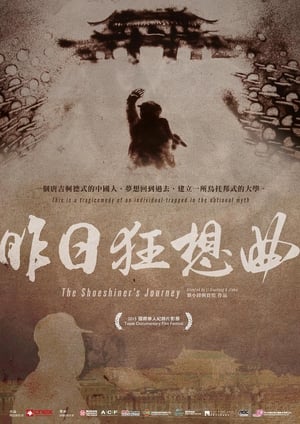
Doctor Ma's Country Clinic(2008)
"Huangyangchuan, Gansu province, China. It's an arid mountain area with poor roads. Ma Bingcheng is well-respected local doctor, so many patients (most of them farmers) come to see him every day. In his small clinic, people chat with each other about their lives, local conditions, or the people they know. The clinic seems to open up like a microcosm, the information and experiences of different people intertwine, revealing the conditions of typical Chinese farmers, and the typical fates of both young and old--"
Movie: Doctor Ma's Country Clinic

马大夫的诊所
HomePage
Overview
"Huangyangchuan, Gansu province, China. It's an arid mountain area with poor roads. Ma Bingcheng is well-respected local doctor, so many patients (most of them farmers) come to see him every day. In his small clinic, people chat with each other about their lives, local conditions, or the people they know. The clinic seems to open up like a microcosm, the information and experiences of different people intertwine, revealing the conditions of typical Chinese farmers, and the typical fates of both young and old--"
Release Date
2008-01-01
Average
6.2
Rating:
3.1 startsTagline
Genres
Languages:
普通话Keywords
Recommendations Movies
 4.4
4.4Natale in Sudafrica(it)
Carlo, on vacation in South Africa with his second wife Susanna meets her younger brother Giorgio.
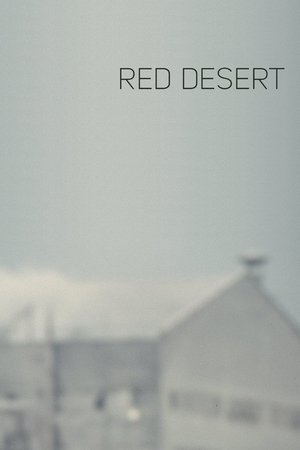 7.4
7.4Red Desert(it)
In an industrializing Italian town, a married woman, rendered mentally unstable after a traffic accident, drifts into an affair with a friend of her husband.
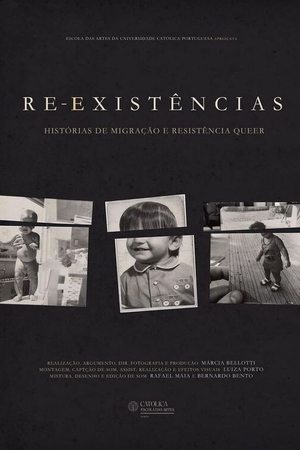 7.4
7.4Re-Existences(pt)
“Re-Existence” is a documentary about migration stories of individuals from the Brazilian queer community.
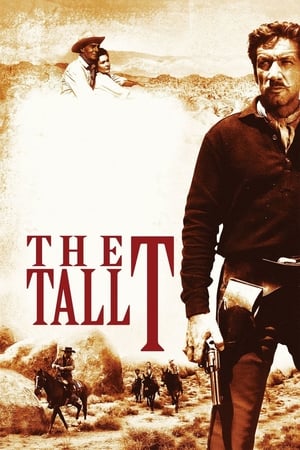 7.0
7.0The Tall T(en)
An independent former ranch foreman and an heiress are kidnapped by a trio of ruthless outlaws.
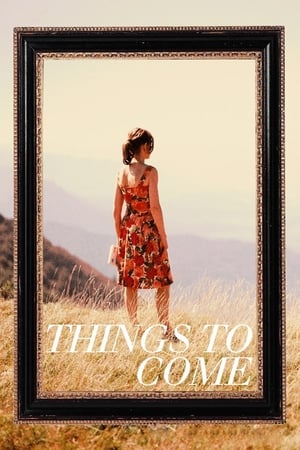 6.5
6.5Things to Come(fr)
Nathalie teaches philosophy at a high school in Paris. She is passionate about her job and particularly enjoys passing on the pleasure of thinking. Married with two children, she divides her time between her family, former students and her very possessive mother. One day, Nathalie’s husband announces he is leaving her for another woman. With freedom thrust upon her, Nathalie must reinvent her life.
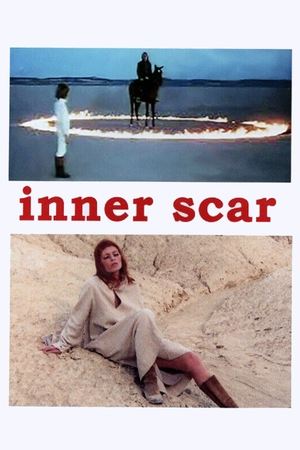 6.7
6.7The Inner Scar(fr)
A composition of symbolic, surreal and almost mystic images.
 6.2
6.2Radio Rebel(en)
High school senior Tara is so painfully shy that she dreads speaking to anyone in the hallways or getting called on in class. But in the privacy of her bedroom with her iPod in hand, she rocks out -- doing mock broadcasts for Miami's hottest FM radio station, which happens to be owned by her stepfather. When a slot opens up at The SLAM, Tara surprises herself by blossoming behind the mike into confident, "Radio Rebel" -- and to everyone's shock, she's a hit!
 7.3
7.3After the Thin Man(en)
Nick and Nora Charles investigate when Nora's cousin reports her disreputable husband is missing, and find themselves in a mystery involving the shady owners of a popular nightclub, a singer and her dark brother, the cousin's forsaken true love, and Nora's bombastic and controlling aunt.
12(en)
After blowing his professional ballet career, John's only way to redeem himself is to concoct the demise of his former partner, Leah, who he blames for his downfall; he rehearses his salvation in his mind in the way that he rehearses a dance, but being able to break from the routine will be the key to his success.
 7.5
7.5Ninotchka(en)
A stern Russian woman sent to Paris on official business finds herself attracted to a man who represents everything she is supposed to detest.
 6.8
6.8French Connection II(en)
"Popeye" Doyle travels to Marseilles to find Alain Charnier, the drug smuggler that eluded him in New York.
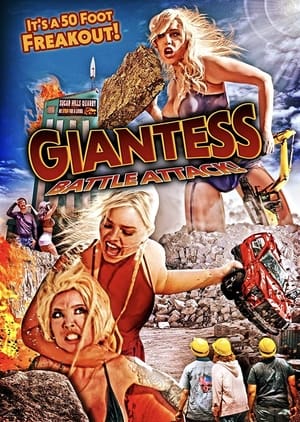 6.0
6.0Giantess Battle Attack!(en)
The beautiful, beastly Beverly returns and faces a new gaggle of gargantuan gals, hell bent on achieving deluxe diva domination. Get ready for the cinematic smackdown thrills of Giantess Battle Attack. Size really does matter.
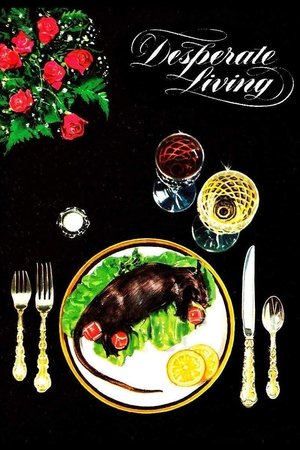 6.5
6.5Desperate Living(en)
After killing her husband, Peggy Gravel and her murderous maid Grizelda wind up in the crazy town of Mortville, where Queen Carlotta presides over a sleazy collection of misfits.
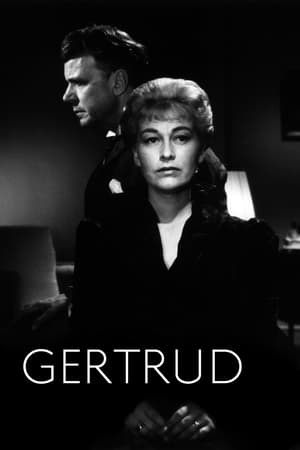 7.2
7.2Gertrud(da)
Hopeless romantic Gertrud inhabits a turn-of-the-century milieu of artists and musicians, where she pursues an idealized notion of love that will always elude her. She abandons her distinguished husband and embraces an affair with a young concert pianist, who falls short of her desire for lasting affection. When an old lover returns to her life, fresh disappointments follow, and Gertrud must try to come to terms with reality.
 7.6
7.6Naruto OVA 11: Sunny Side Battle(ja)
Sunny Side Battle! is an OVA that was released with Naruto Shippuden: Ultimate Ninja Storm Revolution. It features Itachi making breakfast for Sasuke in their old home.
 5.5
5.5Camping(fr)
Plastic surgeon Michel Saint-Josse is on his way to Spain where he hopes to spend a stress-free holiday in a luxury hotel with his teenage daughter Vanessa. When his car breaks down near a camping, Michel accepts the offer of help from an extrovert gigolo camper named Patrick Chirac. Whilst their car is being repaired, Michel and Vanessa agree to stay in Patrick’s well proportioned tent, not knowing that, thanks to a series of mishaps, it will be their home for several days...
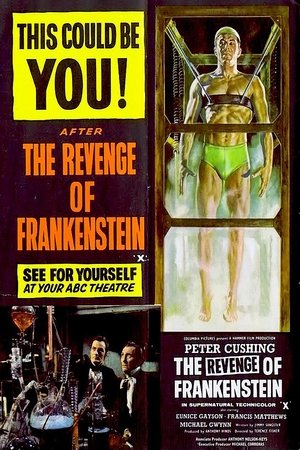 6.6
6.6The Revenge of Frankenstein(en)
Rescued from the guillotine by his devoted dwarf Fritz, the Baron relocates to Carlsbruck, where he continues his gruesome experiments.
 5.9
5.9Naomi and Ely's No Kiss List(en)
The bonds between Naomi and Ely are tested when they fall for the same guy.
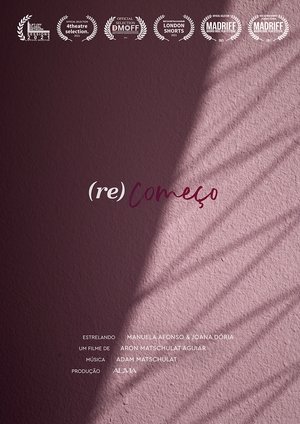 7.4
7.4(re)kindle(pt)
Ana and Helen, two divorced women, were close friends as teenagers. Today, amidst the corona virus pandemic and in quarantine, they get in touch after 20 years via internet. Through video conference calls, memories, sensations and emotions reflourishes.
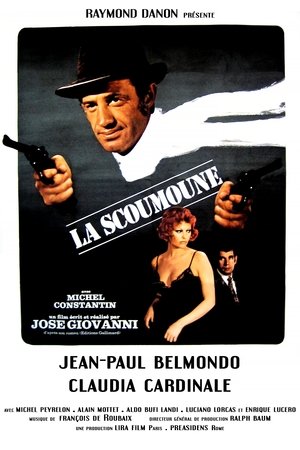 6.9
6.9The Pariah(fr)
For more than 15 years, two Marseille friends and criminals battle the law, rival gangs, prison authorities and even mined beaches in order to survive.
Similar Movies
 7.6
7.6Twenty Two(zh)
Follow the lives of the elderly survivors who were forced into sex slavery as “Comfort Women” by the Japanese during World War II. At the time of filming, only 22 of these women were still alive to tell their story. Through their own personal histories and perspectives, they tell a tale that should never be forgotten to generations unaware of the brutalization that occurred.
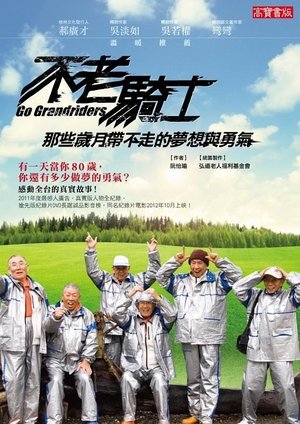 7.3
7.3Go Grandriders(zh)
17 riders with avarage age 81 decide to follow the dream of their youth and start their journey to ride around Taiwan island.
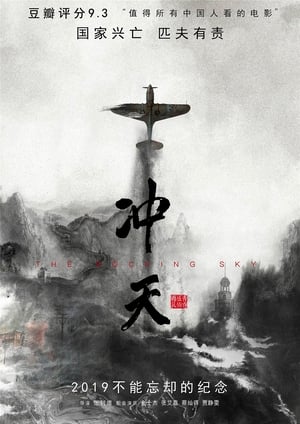 9.0
9.0The Rocking Sky(zh)
To commemorate the 70th anniversary of the victory of WWII, this documentary film describes the eight years of dauntless air-force fighting of the republic of China during the Anti-Japanese War, with only 300 combat-capable aircraft from China while Japan had over 2000.
 8.0
8.0Heidi in China(en)
In 1946, Heidi is entrusted to a Swiss family by her father. He will never come back for her. Today, François Yang questions his mother about her past. What follows is a journey to China, a quest to reconstruct memory. Through contact with her brothers and sister, Heidi measures the extent of the drama experienced by her family that remained in China, persecuted by the Communist Party.
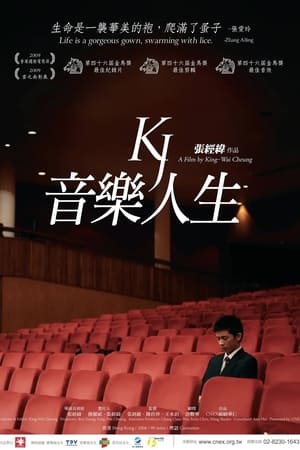 7.8
7.8KJ: Music and Life(cn)
KJ is a biography of a HK musical genius. At the age of 11, KJ won the Best Pianist price and went to Czech to perform with a professional orchestra. Touching on subjects such as the meaning of life, God and the artistic process, the director’s 6-year-conversations with KJ reveal how a young man inspires by his music teacher, Nancy Loo and how he conflicts with his peers and parents. KJ is not about the victory of a genius, but how he learns to be a "human being".
 0.0
0.0First Vote(en)
A soon-to-be first-time voter, the filmmaker’s thought-provoking journey into the Rust Belt and South captures four Asian American voters’ ardent first time grassroots political participation ignited by the 2016 rise of “Chinese Americans for Trump.” FIRST VOTE is a character driven cinema verité style film chronicling the democratic participation of four Asian American voters from 2016 through the 2018 midterm elections.
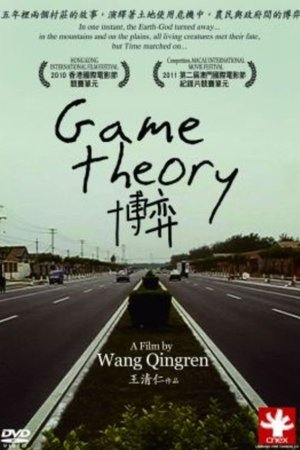 0.0
0.0Game Theory(zh)
This is a story about a five-year battle waged between the farmers of two villages and the local government over land-use rights. This documentary illustrates the subtle changes being made to the rules of the game between officials and citizens, and provides deep human insight into the loss, despair and increasing awareness experienced by common farmers in the pursuit of land-use rights.
 6.6
6.6The Iron Ministry(zh)
Filmed over three years on China’s railways, The Iron Ministry traces the vast interiors of a country on the move: flesh and metal, clangs and squeals, light and dark, and language and gesture. Scores of rail journeys come together into one, capturing the thrills and anxieties of social and technological transformation. The Iron Ministry immerses audiences in fleeting relationships and uneasy encounters between humans and machines on what will soon be the world’s largest railway network.
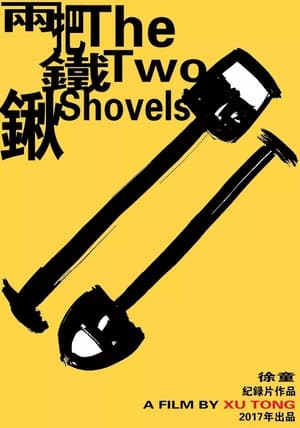 0.0
0.0The Two Shovels(zh)
After "Old Tang Tou", Xu Tong continued to film the family of Old Tang Tou's son, Tang Laosan, in Northeast China. Tang Laosan was sent to prison for a murder case, and Tang Laosan's son, Xiaobao, unexpectedly encountered such a change in the year of his high school entrance exams, which made the fates of father and son both unpredictable.
 9.0
9.0Demolition(zh)
"If the old doesn't go, the new never comes" recites a teenager hanging out near a demolition site in the center of Chengdu, the Sichuan capital in western China. In Demolition, filmmaker J.P. Sniadecki deconstructs the transforming cityscape by befriending the migrant laborers on the site and documenting the honest, often unobserved, human interactions, yielding a wonderfully patient and revealing portrait of work and life in the shadow of progress and economic development.
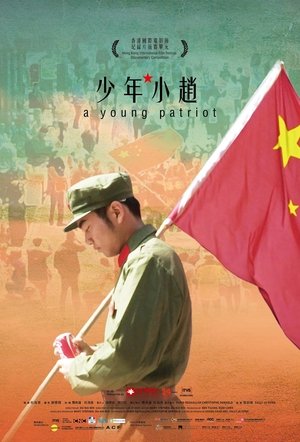 7.0
7.0A Young Patriot(zh)
A documentary chronicling the coming of age of a young chinese man.
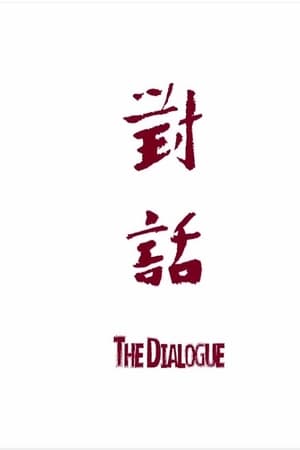 0.0
0.0The Dialogue(cn)
Interviews with Dalai Lama and some Chinese intellectuals about Tibet/China relations and related issues.
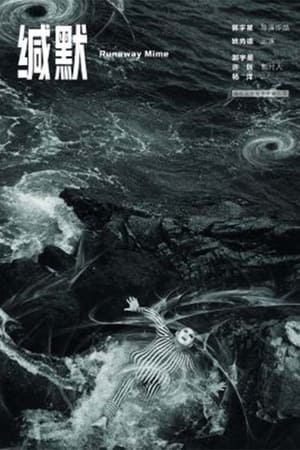 0.0
0.0Runaway Mime(zh)
Yao Shangde is a mime artist from Taiwan. He has rich experience in stage performance. In 2011, he suddenly decided to start his personal street mime performance project "Mime Runaway". He thinks that he would be more willing to perform his mime art on the street than performing in a static theater. He believes that performing arts should enter every ordinary person's daily life. He also tried to use this form of performance to teach people how to open up and accept strangers around him. The inexplicable fear of strangers has always been the demon he has been unable to overcome in the past ten years. He is trying to use this form of artistic performance to carry out a self-salvation of his past.
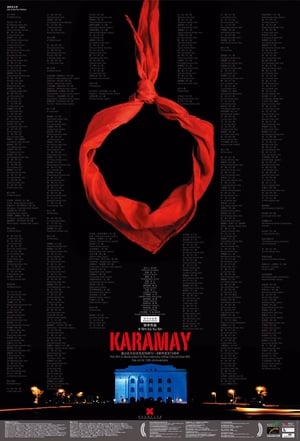 7.5
7.5Karamay(zh)
In 1994, the oil-rich city of Karamay in Northwest China was the site of a horrible fire that killed nearly 300 schoolchildren. The students were performing for state officials and were told to stand by while the officials exited first. After the fire, the story was heavily censored in the Chinese state media. To this day, the families of Karamay have not been allowed to publicly mourn their children.
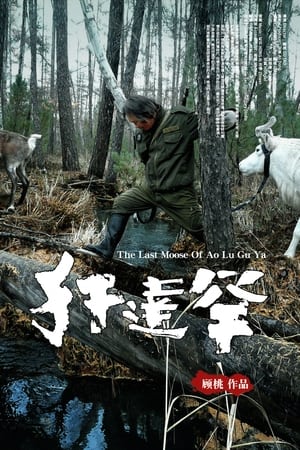 8.0
8.0The Last Moose Of Ao Lu Gu Ya(zh)
Documentary about a tribe of indigenous people in northern China.
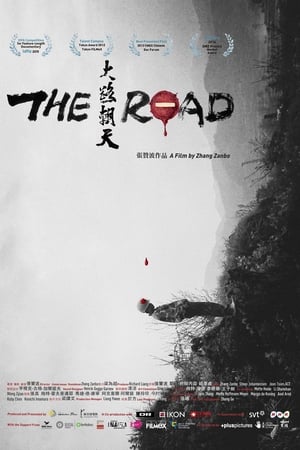 8.5
8.5The Road(zh)
A highway is waiting to go through a quiet village in Hunan, a province in central China where Mao was from. Due to the high cost of construction, construction companies and migrant workers who live on road work rush to here like the tide. In the following four years, they root in this strange place for interests, paying sweat and blood, even their lives. With their arrival, local village and peasants are forced to change their lives. Many hidden interest lines and hidden rules about road construction of the nation are unveiled, together with the shocking truth and emerging secrets.
 3.0
3.0Pathway(zh)
Xu Xin’s film “Dao Lu” (China 2012) offers an exclusive “in camera” encounter with Zheng Yan, an 83 year-old veteran of the Chinese Red Army, who calmly relates how he has navigated his country’s turbulent history over three-quarters of a century.Born to a wealthy family in a foreign concession, Yan joined the Chinese Communist Party (CCP) in 1941 because he sincerely believed in the socialist project, and in its immediate capacity to free China from the Japanese yoke and eradicate deep-rooted corruption.
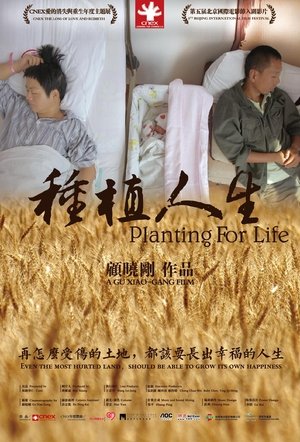 0.0
0.0Planting for Life(zh)
Old Jia gave up his city life and returned to the countryside with his wife. He abandoned chemical fertilizer to practice natural farming. His philosophy attracted a big group of admirers from the city, whereas local villagers disagreed on his approaches.
 8.0
8.0Papa Rainbow(zh)
In China, most families have difficulties facing their lesbian, gay, bisexual and/or transgender (LGBT) children. They have to contend with common social beliefs that homosexuality is shameful, abnormal, a perverted condition caused by deviant family relationships. Many parents see their kids as their property, and fathers often assert their authority to ensure that no harm comes to the family reputation. The documentary 'Papa Rainbow' features six Chinese fathers who talk openly and freely about their experiences with their LGBT children. Speaking out against discrimination and stigma, they redefine what it means to protect a household. They fully embrace their kids for who they are, and become pioneer activists fighting for an equal and diverse society.
